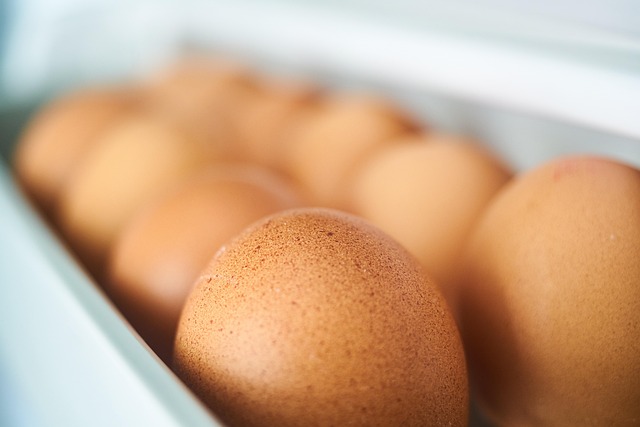For individuals facing infertility due to ovarian removal, exploring egg donation is a vital step towards building their desired family. This guide provides an overview of the process, emphasizing the importance of medical screening for both recipients and donors to ensure compatibility and safe outcomes. Understanding eligibility criteria, including age factors, is crucial. The process involves rigorous screening, matching based on health and emotional fit, and establishing a supportive relationship with the donor. Open communication is key to navigating challenges and fostering trust in this unique family-building journey.
“Embarking on the journey of building your family through egg donation can be both exciting and challenging. This comprehensive guide aims to support individuals and couples navigating the process after ovarian removal, a crucial step in understanding suitable egg donors. We’ll explore essential criteria for donor eligibility, delve into the matching process, and highlight the significance of fostering a supportive relationship with your chosen donor. By understanding ‘egg donation after ovarian removal,’ you can confidently take steps towards expanding your family.”
Understanding Egg Donation After Ovarian Removal: A Comprehensive Guide
For many individuals and families facing infertility or dealing with medical conditions that require ovarian removal, exploring egg donation becomes a significant step towards building their desired family. Understanding the process of egg donation after ovarian removal is crucial in making informed decisions and ensuring a smooth journey. This comprehensive guide aims to shed light on various aspects, offering insights into what to expect and how to navigate this path effectively.
Egg donation after ovarian removal involves a carefully orchestrated process where a donor provides her eggs, which are then used for assisted reproductive technologies such as in vitro fertilization (IVF). It is essential to recognize that this option offers hope and a chance at parenthood for those who might otherwise not be able to conceive. The first step typically includes medical screening and evaluation for both the recipient and the donor to ensure compatibility and safety. This process assesses physical health, medical history, and genetic predispositions, ensuring the highest standards of care and successful outcomes.
Identifying Eligibility Criteria for Potential Donors
When considering egg donation, it’s crucial to understand that potential donors have specific eligibility criteria to meet. One key factor is medical history; prospective donors undergo rigorous screenings to ensure their overall health and fertility. This includes evaluating their ovarian function, as well as ruling out any genetic disorders or chronic conditions that could impact egg quality. For women who have undergone ovarian removal due to medical reasons, the landscape changes slightly. In these cases, egg donation becomes an option to build a family, but it’s essential to consult with healthcare professionals to assess the possibility and potential challenges.
Additionally, age is a significant consideration. Both natural and donor eggs have a window of optimal quality, generally considered to be in a woman’s 20s and early 30s. Beyond this period, the number and health of eggs decrease, which can affect fertility outcomes. Therefore, understanding these eligibility criteria is vital when searching for an egg donor, especially for individuals exploring options after ovarian removal.
The Process of Matching and Selecting an Ideal Egg Donor
When exploring egg donation after ovarian removal, finding the right match is paramount for a successful and comfortable journey. The process begins with extensive screening both of the prospective donor and the recipient family. This includes medical history checks, genetic testing, and psychological evaluations to ensure compatibility and minimize risks.
Once screened, donors are matched based on criteria like age, medical fitness, and egg quality. After an initial connection, families can meet potential donors, allowing for a personal assessment of their relationship dynamics. The selection phase involves considering not just biological factors but also emotional needs, ensuring the chosen donor aligns with the family’s values and expectations.
Building a Supportive Relationship with Your Chosen Donor
Building a supportive relationship with your chosen egg donor is crucial, especially if she has experienced ovarian removal or any other health conditions. Communication becomes even more vital in such cases. Open and honest conversations allow both parties to understand each other’s needs, expectations, and boundaries. This is particularly important when discussing medical history, as it can impact the donation process and future family planning.
A strong bond fosters trust, ensuring a comfortable and safe space for your donor to share her personal journey. It also enables you to provide emotional support, creating a supportive network that extends beyond the legal requirements of egg donation. Remember, a positive relationship enhances the entire experience, making it easier to navigate any challenges that may arise during the process, particularly when considering egg donation after ovarian removal.
When exploring egg donation after ovarian removal, a thoughtful and supportive approach is key. By understanding eligibility criteria, matching with the ideal donor, and building a strong relationship, families can navigate this process successfully. This comprehensive guide empowers individuals to make informed decisions, ensuring a positive journey towards expanding their family through egg donation.
